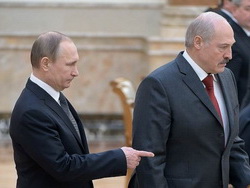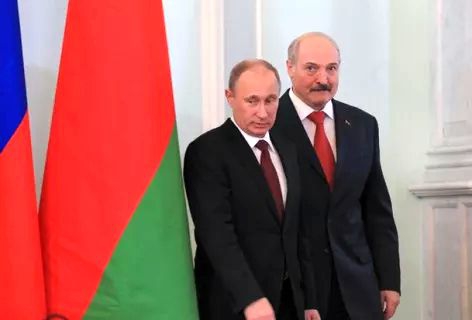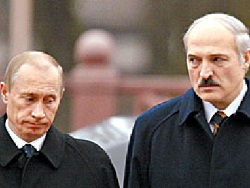The President of Belarus decided to do what had been telling the opposition to go on rapprochement with Europe. He is sure that normalization of relations with the EU will allow him to strengthen state sovereignty and to profit from the new loans, writes Rzeczpospolita. However, this does not prevent the Belarusian leader to continue to “brotherly” to get billions in loans from Russia, emphasizes the Polish edition.

Alexander Lukashenko says Belarusian opposition, writes Rzeczpospolita. Ruling for more than two decades, the President of Belarus stakes on full normalization of relations with the European Union, emphasizes the Polish edition.
The Belarusian delegation headed by Deputy foreign Minister Alena Kupchyna went on Wednesday to Brussels to participate in a two-day meeting of the coordination group of the Belarus – EU. This is the first such meeting since the abolition in February of the EU sanctions against Belarus. The Belarusian foreign Minister Vladimir Makei said that Brussels would encompass many subjects, from energy cooperation and to human rights, tells Rzeczpospolita.
The direction of action of the Belarusian diplomacy has determined the day before Alexander Lukashenko.
“It is important to continue the full normalization of relations and deepening of cooperation with the EU in the context of our national interests. We are talking about the consolidation of state sovereignty and independence, security and stability of Belarus“, – said the President.
That the cooperation with the EU will strengthen independence and sovereignty of Belarus, for many years, told representatives of the Belarusian democratic opposition. “Now this rhetoric is adopted by Lukashenka, who until recently Western politicians called the last dictator of Europe”, – emphasizes the publication.
“This is a very good, proper and correct statement. However, it may remain a mere Declaration, because the Belarusian President, giving the word, in every moment from his promise to refuse”, – said the Polish edition Ales Zarembiuk, the head of the Belarusian house in Warsaw.
During the last meeting with the government Lukashenka repeatedly stressed that he wants relations with the EU were worn primarily not political, but pragmatic. “Advisers persuaded him to normalize relations with the West. The price of this normalization was the release of political prisoners and the holding of elections without repression”, – says the publication Rzeczpospolita known Belarusian political analyst Valery Karbalevich.
“Today Lukashenka asks a specific question: how much money he will receive in exchange for concessions? It is about the support of the International monetary Fund and other international financial institutions”, – says the analyst.
“Trick of Lukashenka to the European Union of concern to Moscow, which is not missing constant declarations of the Belarusian President that “the Russians –
these are our brothers”” – emphasizes the Polish edition. Especially after last week to stabilize its economy, Belarus has received from the Kremlin a loan of 2 billion U.S. dollars.
“He has received the first tranche and already showed Russia that he didn’t want it”, – said the Polish edition Professor Andrew Suzdaltsev from Moscow Higher school of Economics. “This country is living solely on loans. The Belarusian economy remained in Soviet times. In the absence of urgent reforms and modernization of Minsk may repeat the fate of Kiev”, – he said.
That the economic situation in Belarus is not perfect, according to recent polls of the Independent Institute of socio-economic and political studies (IISEPS). The majority of Belarusians declare the worsening of its financial situation, and nearly half do not believe their President. Within half a year provided support decreased from 45,7 to 27.3 per cent. Despite this, the Belarusians don’t want to protest. To achieve their rights on the street ready only 18 percent of respondents, summarizes Rzeczpospolita.








